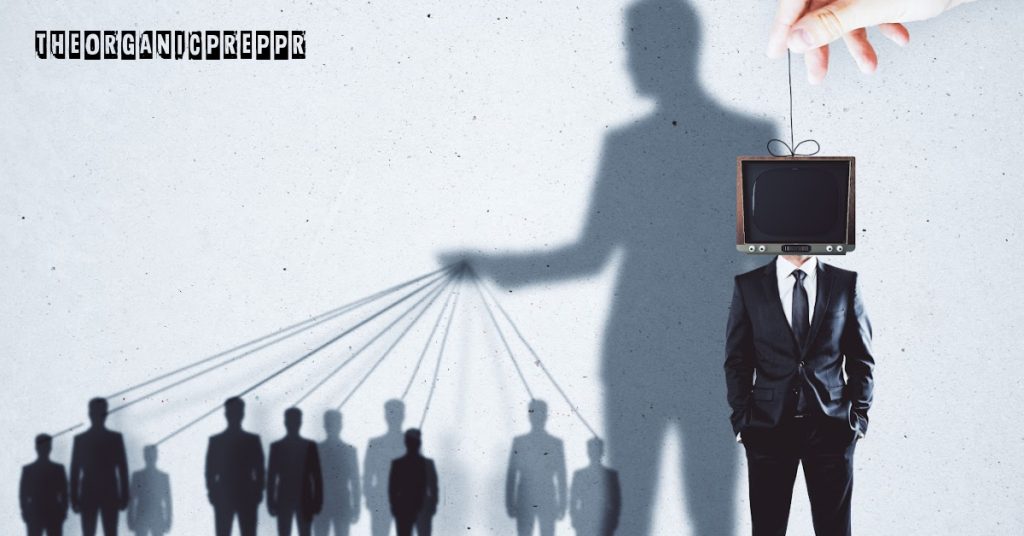by Daisy Luther, The Organic Prepper:

Freedom of speech means a lot to us at the OP. However, that’s been fading fast, as Daisy has documented, and as though speech restrictions aren’t bad enough, most of us have been lab rats for central planners’ behavioral experiments longer than we probably care to realize. And now there are Nudge Units.
Huge amounts of money have been poured into “nudge research,” determining the best ways to get populations to change their behaviors without passing laws or using force.
TRUTH LIVES on at https://sgtreport.tv/
What are Nudge Units?
Let’s look at how these “Nudge Units” got started, what they’ve been used for most recently, and what they’re likely to focus on next.
The concept of “nudging” people into making better choices became popular with the book Nudge—Improving Decisions About Health, Wealth, and Happiness, authored by Richard Thaler and Cass Sunstein, and published in 2008. Their book defines a nudge as:
. . .any aspect of the choice architecture that alters people’s behavior in a predictable way without forbidding any options or significantly changing their economic incentives. To count as a mere nudge, the intervention must be easy and cheap to avoid. Nudges are not mandates. Putting fruit at eye level counts as a nudge. Banning junk food does not. (p.6)
(You may be interested to note that author Sunstein is married to Samantha Power, the administrator of Biden’s US Agency for International Development and previously Obama’s ambassador to the UN. Forbes listed Ms. Power as the 63rd most powerful woman in the world in 2014. Do you think she’s Nudging? ~ Daisy )
Individuals in government and industry quickly realized that the authors’ insights into the decision-making process could be used to manipulate that process in the minds of the general public, many of whom don’t have the time or mental energy for NYT bestsellers.
The British government established its first Behavioural Insights Team in 2010. It began as a seven-person team within a Cabinet Office nicknamed the “Nudge Unit” then became an independent social purpose company in 2014 before being purchased by Nesta, a larger social purpose company, in 2021.
These social purpose companies employ experts in promoting desirable behaviors. So in Britain, for example, they want to cut obesity rates in half and reduce household carbon emissions by 28% by 2030.
I don’t know how successful they’ve been in cutting obesity rates, but the Nudge Unit did prove its effectiveness early on by helping the British government collect an extra £200 million (about $248 million) in taxes in 2017. Not surprisingly, the Nudge Unit has become so popular that they have worked with governments in over 50 countries and have opened subsidiary offices in the U.S., Singapore, Canada, Australia, Indonesia, Mexico, and France.
What does a Nudge look like in the States?
Within the U.S., Nudge Units have been employed by health care systems such as UPenn, and Blue Cross Blue Shield Massachusetts. In a way, this isn’t surprising; American and British citizens alike are known for high obesity rates and poor overall health.
Promoting good health within the general population seems like a good government goal, and I think most of us would have found this largely uncontroversial before 2020. We may not always have agreed with the FDA’s exact dietary advice, but most of us would have probably agreed that we, as a nation, don’t need quite so many candy bars.
However, during 2020, this changed. Public messaging around health care became far more intense, and some of the advice didn’t make sense. At the very simplest level, what makes people healthy? Exercise and proper diet. Humans have known intuitively for a long time that sunshine is good for us. More recent research has shown that it kills viruses and bacteria. So why were people being forbidden to exercise and even, in some cases, to go outside?
This article isn’t really about the many possible reasons the public was given so much nonsensical advice during 2020 and 2021. I am just pointing out that, in some ways, the public health messaging campaign during Covid was seen by various governments (particularly the British) as an opportunity to see how far Nudging could influence actual behavior, even when the nudges didn’t make logical sense.
Fortunately (or unfortunately, depending on your point of view), governmental Nudging didn’t influence people nearly as much as various government bodies had hoped. In fact, Nudge author Thaler himself said that, when it came to increasing vaccine uptake, it was time for “pushes and shoves” in the form of passports and more severe restrictions.
But the pandemic is officially over, right? Does this really matter now?
Yes, it still does.
As we discussed before, the World Health Organization is set to ratify a new pandemic treaty in 2024. As discussed in our previous article as well as in Jose’s more recent article, we have plenty of reasons to believe that more pandemics will come along, and that the WHO will be taking precedence over local and even national governments to address them.
The WHO has grown a lot since its inception in 1948. It has had its own Behavioral Insights Team since 2017. And some of their work, like their campaign to prevent the over-use of antibiotics, has been really important. But just because they undertake some worthwhile projects doesn’t mean we can assume everything they do is benign.
It’s crucial to understand that there are no neutral Nudges. Richard Thaler points this out himself in an interview with Sydney Business Insights. You will always be asked to choose between one thing and another. Thaler also says in this interview that, within the original British Nudge Unit, their mantra was, “If you want people to do something, make it easy.” Ask yourself, are people that constantly shoot for the lowest common denominator in a population the ones you want to take guidance from?
Read More @ TheOrganicPrepper.ca



